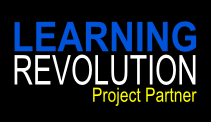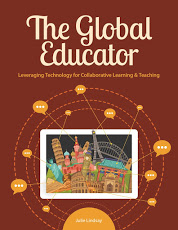Kevin Burden
Hull, UK
Blog: http://digitalalchemy.typepad.co.uk/digital_alchemy/
Presentation Title
“Hardy’s Wessex: video editing and learning online”
Bio
Kevin Burden is a lecturer and researcher in educational technology based at the University of Hull. He is the director of a unit called Cascade which specialises in the professional development of teachers and educationalists in the use of new technologies. They have run a number of programmes for teachers in the use of social software ranging from foundation degree through to masters level. Kevin is currently working with a number of local secondary schools to explore how these collaborative tools can be used to create learning communities which extend beyond the confines of the classroom. One of these projects is based on the use of online digital video editing environments and features the work of a local school investigating the poetry of Thomas Hardy through podcasts and video editing. Students used Jumpcut as the basis for this work and this will be the focus of the presentation.
Description
This presentation will explore the potential of video editing tools on line and video podcast tools to create and share a common topic studied in a school context (in this case the poetry of Thomas Hardy). The project was used to demonstrate the viability of using visual tools (e.g. video editing) to enable students to deepen their undertsanding and appreciation of a traditional curriculum topic such as poetry. The presentation will take the form of a short video podcast explaining what the project was about and illustarting how the students gained a deeper understanding of this topic through the use of these tools. This will include links to a website I have created to showcase their work and the process of producing it. In addition the podcast will explain how students can use an online editing and streaming tool (in this case Video Egg and Jumpcut) to produce and distribute this work and the collaborative possibilities these tools bring to the classroom.
Presentation
Video: http://k12online.wm.edu/k12+conference.mp4
Warning: Long download, 113 Mb.
Podcast: http://k12online.wm.edu/K12-podcastv2.mp3 (32 Mb)
Supporting Links
Project Website
http://web.mac.com/kburden/iWeb/Wessex%20Heights/Podcast/Podcast.html








Pingback: The Thinking Stick
I have a comment on the ability of Digital Natives to “read and interpret” digital video based material, but not be able to produce it.
As acclaimed as Prensky’s work is I don’t agree with it. My students don’t seem any more comfortable producing using new tools than “digital immagrants” are. They may learn better from digital media and the web than older people but I’m not sure this is because their brains are wired differently. I think it has to do with their voluntary exposure to the technologies. Older people who choose to expose themselves to these technologies can be just as comfortable with them; older people can be just as facile with these emerging technologies if they choose to spend time playing with them.
It seems to me (I’ve not collected any hard data to support this) that age is not a very good predictor of ability to use emerging technologies. It may simply be that young people tend to be more flexible and willing to try new things. This is not confined to the digital world. Kids will pick up and drop new sports or hobbies far more frequently than adults, for example.
Pingback: Thing 13: Pajama “rather sports clothes” Conference | Ruschn2discover